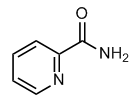The present experiments indicate the importance of TGF-b mediated pulmonary fibrosis in human cystic fibrosis lung disease. We have previously demonstrated elevated protein levels of TGF-b in bronchoalveolar lavage fluid in CF vs. non-CF pediatric patients. In CF, we showed that TGF-b in lavage fluid is associated with increased airway inflammation, recurrent hospitalizations, and diminished lung function. We also found that  increased plasma TGF-b in CF could be used to predict impaired lung mechanics, and that diminished levels of TGF-b were observed following clinical responsiveness to parenteral antibiotic therapy. TGF-b has multiple biologic functions linked to airway remodeling, wound healing and fibrosis, including enhanced cellular migration, immunomodulation and extracellular matrix synthesis. To mediate biologic effect, latent TGF-b must be activated to bind the TGF-b receptor complex which transmits a signal chiefly through Smad protein phosphorylation. Our findings establish TGF-b activation is markedly upregulated in CF lung disease, and provide new insight regarding the well-described but not well-understood role of TGF-b as a genetic modifier of cystic fibrosis pulmonary decline. A model depicting the current findings and their pathologic significance is shown in Figure 5. From a mechanistic standpoint, myofibroblast differentiation is induced in the setting of increased TGF-b signaling and mechanical strain, both of which are prominent in CF lungs. Well-described factors that increase TGF-b signal transduction in cystic fibrosis airways include local hypoxia, persistent epithelial injury, and increased protease activity. Furthermore, myofibroblasts themselves promote TGF-b activation via contraction, and mechanical strain in CF is pronounced due to mucus plugging, heterogeneous air trapping, and chronic cough. The environment in the CF lung is therefore well primed for increased TGF-b signaling, myofibroblast differentiation and persistence of pathologic fibroblast behavior as established here. In summary, our study describes a novel mechanism by which TGF-b associated myofibroblast differentiation contributes to the progression of cystic fibrosis lung disease. The development of experimental anti-fibrotic therapies, particularly those that limit TGF-b activation and signaling, could furnish a novel means to blunt the intense pulmonary fibrosis among CF subjects shown here. The findings provide a means by which TGF-b driven myofibroblast differentiation and dysfunction in CF lung disease can be better understood in the future. In higher plants, embryogenesis is a key developmental event under precise genetic regulation. After fertilization, the fertilized egg undergoes a series of biological process, such as zygote activation, polarity establishment, pattern formation and organogenesis. Subsequently, developing embryos enter maturation phase during which storage reserves are accumulated abundantly.
increased plasma TGF-b in CF could be used to predict impaired lung mechanics, and that diminished levels of TGF-b were observed following clinical responsiveness to parenteral antibiotic therapy. TGF-b has multiple biologic functions linked to airway remodeling, wound healing and fibrosis, including enhanced cellular migration, immunomodulation and extracellular matrix synthesis. To mediate biologic effect, latent TGF-b must be activated to bind the TGF-b receptor complex which transmits a signal chiefly through Smad protein phosphorylation. Our findings establish TGF-b activation is markedly upregulated in CF lung disease, and provide new insight regarding the well-described but not well-understood role of TGF-b as a genetic modifier of cystic fibrosis pulmonary decline. A model depicting the current findings and their pathologic significance is shown in Figure 5. From a mechanistic standpoint, myofibroblast differentiation is induced in the setting of increased TGF-b signaling and mechanical strain, both of which are prominent in CF lungs. Well-described factors that increase TGF-b signal transduction in cystic fibrosis airways include local hypoxia, persistent epithelial injury, and increased protease activity. Furthermore, myofibroblasts themselves promote TGF-b activation via contraction, and mechanical strain in CF is pronounced due to mucus plugging, heterogeneous air trapping, and chronic cough. The environment in the CF lung is therefore well primed for increased TGF-b signaling, myofibroblast differentiation and persistence of pathologic fibroblast behavior as established here. In summary, our study describes a novel mechanism by which TGF-b associated myofibroblast differentiation contributes to the progression of cystic fibrosis lung disease. The development of experimental anti-fibrotic therapies, particularly those that limit TGF-b activation and signaling, could furnish a novel means to blunt the intense pulmonary fibrosis among CF subjects shown here. The findings provide a means by which TGF-b driven myofibroblast differentiation and dysfunction in CF lung disease can be better understood in the future. In higher plants, embryogenesis is a key developmental event under precise genetic regulation. After fertilization, the fertilized egg undergoes a series of biological process, such as zygote activation, polarity establishment, pattern formation and organogenesis. Subsequently, developing embryos enter maturation phase during which storage reserves are accumulated abundantly.